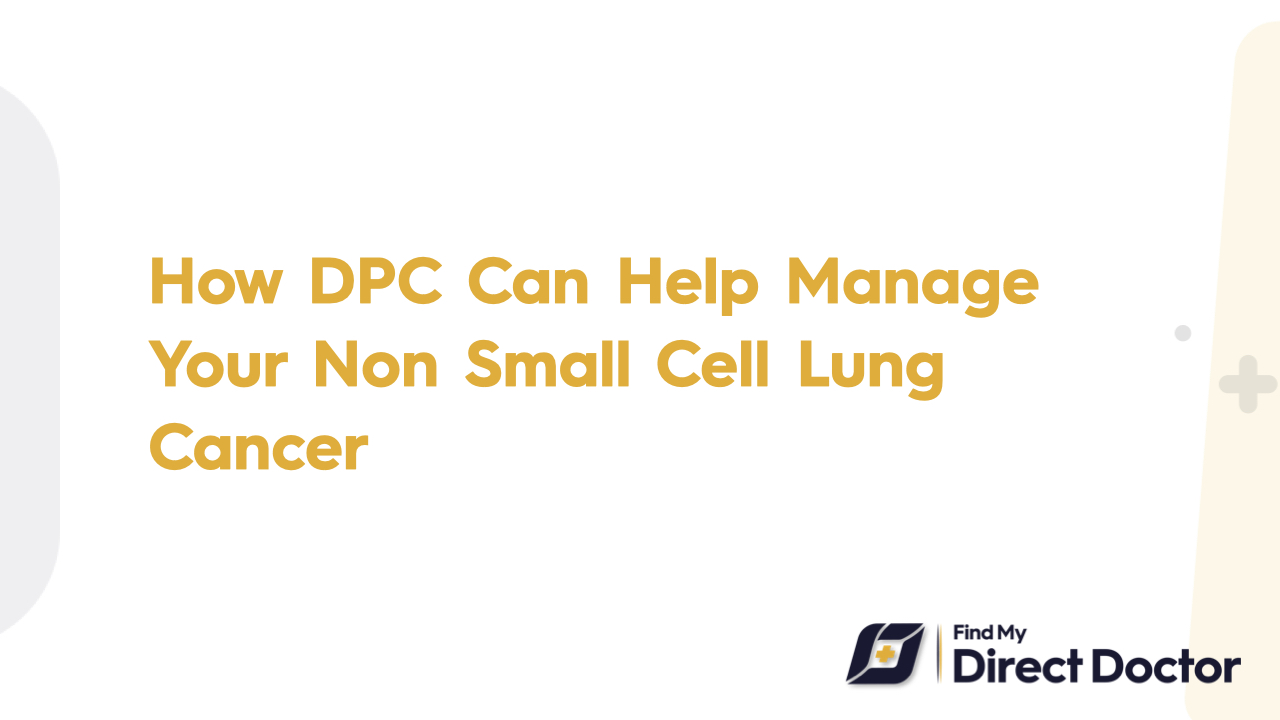



About 85% of instances of lung cancer are non-small cell lung cancer (NSCLC), making it the most prevalent kind. It starts in the lungs' lining cells and has the potential to expand and spread to other body organs. A persistent cough, chest pain, shortness of breath, wheezing, or coughing up blood are some of the early signs, which are frequently mild. People may become tired, lose weight, and lose their appetite as the illness worsens. Early detection and intervention are essential since NSCLC can cause serious problems and spread to other organs if treatment is not received.

By offering individualized, ongoing care, Direct Primary Care (DPC) can be extremely helpful in controlling non-small cell lung cancer (NSCLC). DPC providers can keep an eye on your general health and work with specialists and oncologists to create treatment programs that are customized for you. DPC makes the required referrals to specialists and enables early detection of any changes in your symptoms through routine check-ups. In order to enhance quality of life during treatment, DPC providers also concentrate on treating symptoms like pain, exhaustion, and dyspnea.
Receiving more prompt and targeted care is one of the main advantages of DPC for patients with non-small cell lung cancer. DPC provides direct access to medical professionals, guaranteeing that any issues about symptom management or treatment can be resolved quickly. In order to effectively manage complicated illnesses like NSCLC, trust and open communication are fostered by the long-term relationships formed in DPC. Additionally, DPC can aid patients in navigating the healthcare system by helping to manage treatments, coordinating care, and offering emotional support.
DPC allows for extremely individualized NSCLC care that is tailored to each patient's particular need. In close collaboration with you, DPC providers will create a treatment plan tailored to your unique diagnosis, preferences, and way of life. This method enables ongoing symptom monitoring and necessary treatment modifications. DPC makes sure that every patient gets the care and support they require to effectively manage their disease, whether that care involves controlling the adverse effects of chemotherapy, helping with palliative care, or making sure that appropriate follow-up care is provided.